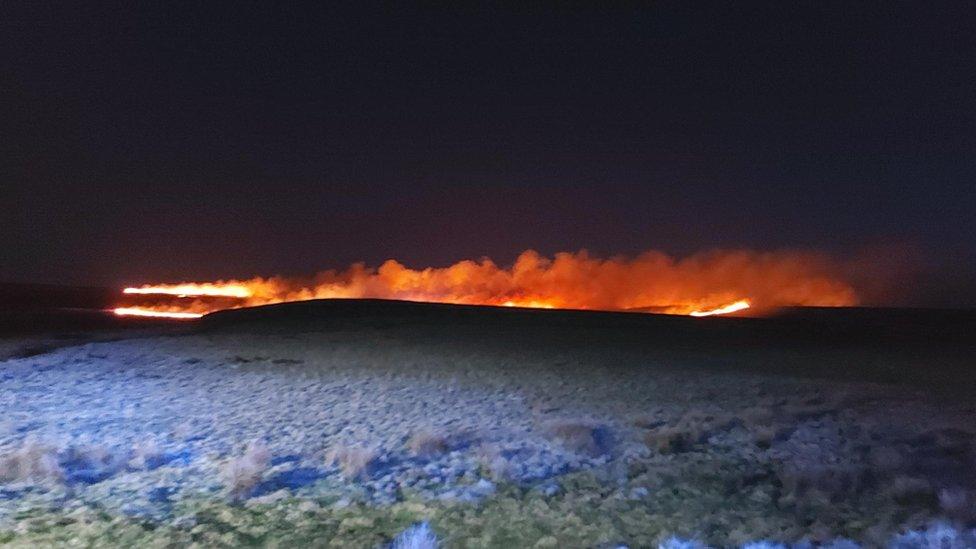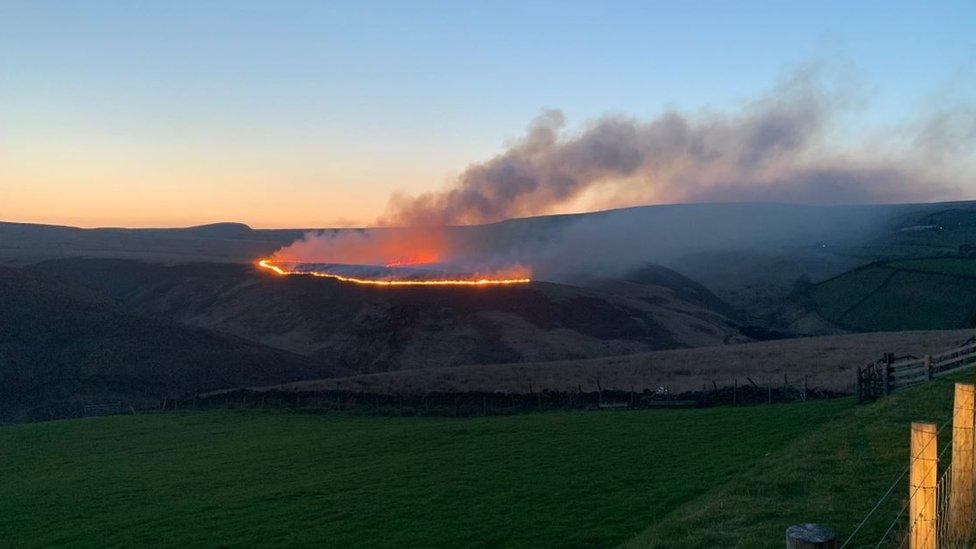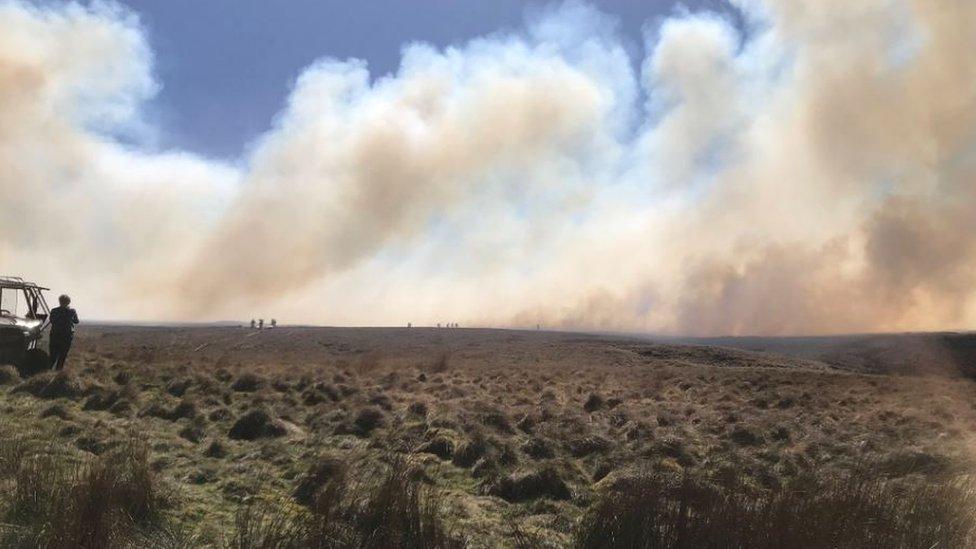Marsden Moor fire: Crews at scene of mile-long blaze
- Published
The fire on Marsden Moor could have been avoided, the National Trust said
Four fire crews and specialist wildfire units are tackling a huge mile-long moorland blaze near Huddersfield.
The fire on Marsden Moor near Black Moss Reservoir and Swellands Reservoir started at 19:00 BST on Sunday, owner National Trust said.
It has caused major damage and could have been avoided, the trust added.
The blaze comes almost two years to the day since fire destroyed seven sq km (1,730 acres) of land in April 2019, which was started by a barbecue.
West Yorkshire Fire and Rescue Service (WYFRS) has advised nearby residents to keep their doors and windows closed and warned people to stay away from the area.

Fire crews have been tackling the blaze using "blowers and beaters", WYFRS said
At its height, about 50 firefighters were involved, with 10 fire engines and two specialist wildlife units sent to the scene.
Road closures remain in place while crews, some from Greater Manchester Fire Service, tackle small pockets of the mile-long "flame front", WYFRS said.
Crews were "using blowers and beaters to tackle the one-mile flame front" near Mount Road in Marsden, the fire service added.
"We are working with Greater Manchester Fire on the flame front putting out hot spots using the specialist wildfire Argocat," it said.

Fire crews were reduced from 10 to four as firefighters worked overnight and into the morning to tackle the blaze
Craig Best, countryside manager for the National Trust, said: "It's so frustrating to see yet another fire on our moors after all the hard work our team have put in to try and restore the landscape after last time.
"Although not on the same area of land as the 2019 fire, this fire has also destroyed a crucial area for rare birds and mammals, as well as carbon-capturing blanket bog.
"We're so grateful to West Yorkshire Fire and Rescue Service for their efforts.
"Unfortunately, this was another fire started by people and could have so easily been avoided."
Barbecues and fires are banned on the moors all year round to protect the landscape, with anyone breaching the ban liable to face a fine of up to £2,000.
Marsden Moor is a Site of Special Scientific Interest famous for rare ground-nesting birds and blanket peat bogs. It is also home to short-eared owls and mountain hares, the trust says.
The trust said restoration efforts from the 2019 devastation were "expected to take several years and cost at least £500,000".

Follow BBC Yorkshire on Facebook, external, Twitter, external and Instagram, external. Send your story ideas to yorkslincs.news@bbc.co.uk, external.
- Published21 April 2020

- Published20 April 2020
